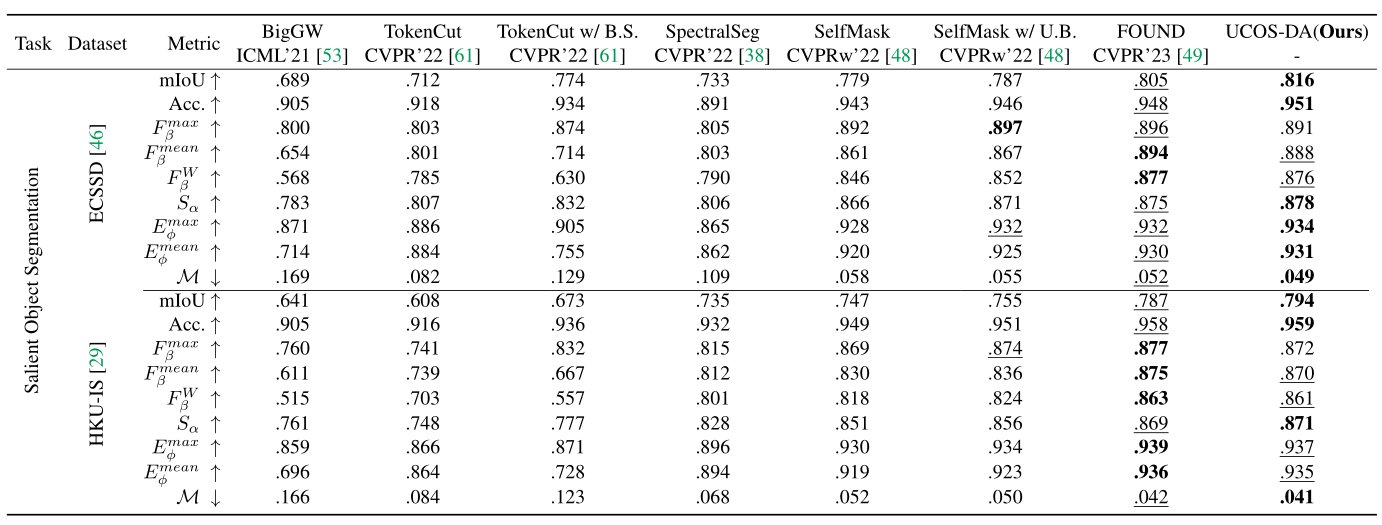Unsupervised Camouflaged Object Segmentation as Domain Adaptation
Deep learning for unsupervised image segmentation remains challenging due to the absence of human labels. The common idea is to train a segmentation head, with the supervision of pixel-wise pseudo-labels generated based on the representation of self-supervised backbones. By doing so, the model performance depends much on the distance between the distributions of target datasets and the pre-training dataset (e.g., ImageNet). In this work, we investigate a new task, namely unsupervised camouflaged object segmentation (UCOS), where the target objects own a common rarely-seen attribute, i.e., camouflage. Unsurprisingly, we find that the state-of-the-art unsupervised models struggle in adapting UCOS, due to the domain gap between the properties of generic and camouflaged objects. To this end, we formulate the UCOS as a source-free unsupervised domain adaptation task (UCOS-DA), where both source labels and target labels are absent during the whole model training process. Specifically, we define a source model consisting of self-supervised vision transformers pre-trained on ImageNet. On the other hand, the target domain includes a simple linear layer (i.e., our target model) and unlabeled camouflaged objects. We then design a pipeline for foreground-background-contrastive self-adversarial domain adaptation, to achieve robust UCOS. As a result, our baseline model achieves superior segmentation performance when compared with competing unsupervised models on the UCOS benchmark, with the training set which's scale is only one tenth of the supervised COS counterpart.
PDF Abstract





 ImageNet
ImageNet
 HKU-IS
HKU-IS
 COD10K
COD10K
 CAMO
CAMO
 NC4K
NC4K